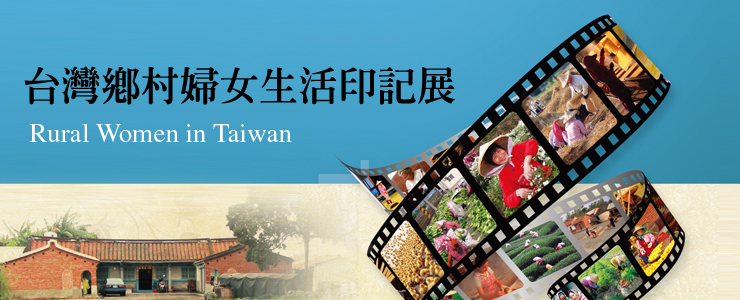
For half a century, Taiwan’s rural women have played a vital role in economic development as well as contributed to social and cultural heritage. Women are responsible for many important tasks in village, for example, approximately 200,000 experienced women are in charge of selecting famous ‘one stem, two leaves’ tea in Taiwan. Additionally, the household has always been considered as the foundation of agriculture in Taiwan. Under transformation of agriculture, many rural women engaged in quality agriculture recently. Civil environmental movements have, moreover, enabled urban homemakers and rural women to network and cooperate. This has led to facilitate rural women’s social participation.
| The consultation for rural women initiated by the Chinese-American Joint Commission on Rural Reconstruction (JCRR) |
 In 1956, the JCCR (the Council of Agriculture in the later) initially assisted local farmers’ associations in offering home economies courses for rural women. Courses including housekeeping, child welfare, sanitation, hygiene, diversification, rural bookkeeping and rural entertainment enabled rural women to involve in national constructions and extend their roles beyond wives, mothers and homemakers. In 1956, the JCCR (the Council of Agriculture in the later) initially assisted local farmers’ associations in offering home economies courses for rural women. Courses including housekeeping, child welfare, sanitation, hygiene, diversification, rural bookkeeping and rural entertainment enabled rural women to involve in national constructions and extend their roles beyond wives, mothers and homemakers.
As rural society developed, the focuses of home economics courses shifted from to nutrition and health, family life adjustment, capacity building for farming women and improving care and life quality for senior citizens. The quality of rural life has elevated as a move from ‘adaptation’ to ‘creation’ in these courses.
|
| Nine-year Compulsory Education programme enhanced literacy and education levels amongst rural women |
 During the Japanese colonial era, Ye Tao, famous for her proactivity, served as Minister of the Women’s Division of the Taiwanese Farmers’ Coalition to promote enlightenment education for rural women since 1927. Contemporaneously, Jane E, Zhang Yulan and other female activist actively participated in peasant movements to advocate women’s education and empowerment in order to encourage women to pursue their aspirations as well as to challenge traditional social norms. During the Japanese colonial era, Ye Tao, famous for her proactivity, served as Minister of the Women’s Division of the Taiwanese Farmers’ Coalition to promote enlightenment education for rural women since 1927. Contemporaneously, Jane E, Zhang Yulan and other female activist actively participated in peasant movements to advocate women’s education and empowerment in order to encourage women to pursue their aspirations as well as to challenge traditional social norms.
In 1968, the introduction of nine years of compulsory education greatly increased the level of education amongst rural women. As a result, they enjoyed higher socio-economic status, and were able to participate in public affairs. Since 1959, the Health Division of the Taiwan Provincial Government conducted maternal and child health promotion program in rural areas with assistance of the JCCR. Family planning slogans such as “3321”, “one family, two children” and “girls and boys are equally precious” became well known. These tasks had both successfully reduced fertility rate and promoted maternal and child health.
|

